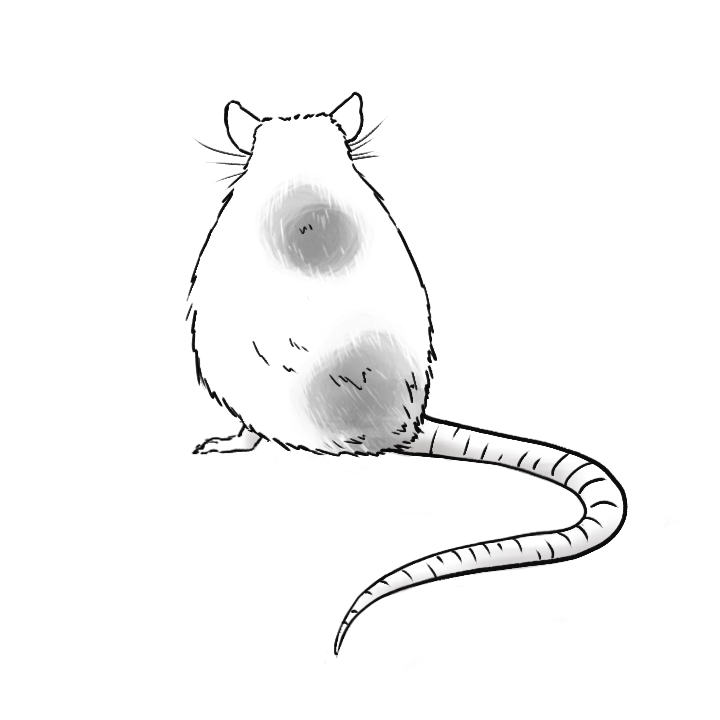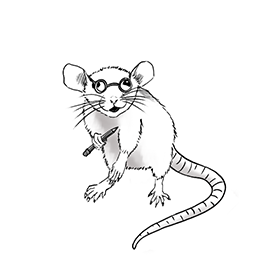If you want to lose weight, should you eat fewer chocolate or less chocolate? Should you spend little time or few time on your couch and more time at the gym? Today, I’d like to take a look at quantifiers and how to use them.
My daughter grew up hearing English every day, but speaking mostly German. Still, after our last visit to the United States and a few weeks at summer camp, she is now perfectly fluent in English and speaks it with a strong American accent.
The only mistake I still have to correct in her English is that she confuses the words less and fewer. Reason enough for me to have closer look at the difference between these words and a few of their little friends. It’s actually quite easy to understand.

Rats’ teeth never stop growing, so they need to continually nibble on things to wear them down. If a rat’s teeth became too long, it would starve to death.
Countable or uncountable?
The trick is to understand what kind of noun you are using the word with.
There are two types of nouns: countable ones and uncountable ones. And yes, that means exactly what it sounds like: The first refers to things you can count, the second to things you can’t count.
You can count people, trees outside your house, flowers in your yard, peas on your plate, cars, dogs, suitcases, etc. – These are all separate things or beings and you can use them in the singular or plural.
You cannot count work, water, flour, dirt, freedom, love, pain, furniture, and so on. – These are materials or substances, abstract ideas, or collections of things.
There are some tricky ones, though.
- What about money? Everyone would agree that you can count money, right? Well, it turns out that you can’t. You can count coins and banknotes, but money you can’t count.
- The same goes for luggage: You can count individual bags and suitcases, but not the complete luggage.
- And as a last example, you can’t count coffee. You can count cups of coffee, but not the coffee itself.
So, after you’ve understood this, let’s get back to our quantifiers.
Much or many
We use much with uncountable nouns and many with countable ones.
I don’t have much time today.
I have so many little things to do.
Little or few
We use little with uncountable nouns and few with countable ones.
I have little patience with people who believe the earth is flat.
Fortunately, few people believe that.
Less or fewer
This is really just a different degree of little and few, so it works exactly the same: We use less with uncountable nouns and fewer with countable ones.
I wish I could spend less time working.
I would like to spend fewer hours at my desk.
More
This is the odd one in the bunch: Like less and fewer, it is a different degree of much and many. But in this case, we can use the word for countable and uncountable nouns.
My husband tells me I should eat more meat.
But I think he is wrong. I think I should eat more vegetables.
And that is all there is to it! I hope you see more clearly now and have fewer questions.

0 Comments